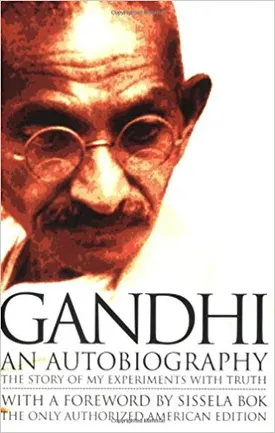Mahatma Gandhi
Mahatma Gandhi is one of the most significant figures in world history. As an influential political activist and national leader of India during the 20th century, Gandhi sought independence from British rule and advocated the practice of non-violence. His efforts ultimately led to India's independence, a major milestone in international governance.
Born in Porbandar, India in 1869, Gandhi was raised in a Hindu family and was heavily influenced by his mother, Putlibai. Gandhi was an active student and was strongly shaped by his spiritual guides, particularly from his family’s Hindu background along with his later connections with Jainism and Christianity.
Gandhi studied law in England and became a barrister in 1891. He was then sent to South Africa in 1893 to represent a business associate in a legal dispute. In South Africa, Gandhi encountered institutionalized racism and was appalled by the lack of legal rights for Indians. After a brief return to India, Gandhi returned to South Africa with a commitment to promote the rights and standing of Indian-born citizens in that country.
Gandhi passed a decade in South Africa, offering pro-bono legal services and championing the Indian cause. It was during his time in South Africa that he developed a philosophy of non-violent civil disobedience – an idea that would form the backbone of Indian independence.
Gandhi made his return to India in 1915. Though not an official political figure, he quickly became one of the most respected voices in India’s independence movement. During the 1920’s, he launched a non-cooperation movement, a strategy of passive mass disobedience to British rule. Gandhi also believed in encouraging a sense of national unity and communal harmony by advocating peaceful protests, fasting and civil disobedience. He believed that violence only perpetuated violence and led India further away from its ambitions of independence.
Gandhi’s persistence and dedication culminated in India’s independence in 1947. With it, however, came the tragedy of the Partition of India, which caused Gandhi to fast, leading to an armistice and ultimately an agreement.
Though Gandhi never achieved the high office of a political leader, his teachings and writings have been a source of great wisdom and knowledge to generations of readers. In Hind Swaraj, his 1909 treatise on Indian self-rule, Gandhi calls for a system of government for India that "gives maximum freedom to the individual and maximum authority to the State." Gandhi's principles of non-violence, self-control, simplicity, and service have since become philosophy for millions of people all over the world.
Mahatma Gandhi is remembered as one of the most influential political leaders of the 20th century, a peaceful revolutionary and teacher of unwavering moral courage. Though his methods were often met with aggression, hatred, and bloodshed, Gandhi's message of selflessness and non-violence has long outlived him.

